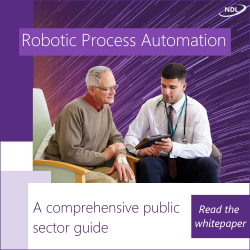Analysis: A mixed record of progress suggests there is a role for a tool to support the cause of opening up data in local and regional government
Local and regional government is producing some of the champions of open data, but so far it has been a patchy trend, with some authorities showing a lot of ambition while others are slow to get involved.
The reasons for the hesitation are mixed – an innate caution, or a preoccupation with what are regarded as more pressing priorities – but a group of champions made the case credibly at a relevant session at yesterday’s Open Data Summit.
The underlying message was that it can bring substantial benefits, especially when other bodies do the work in reusing the data, but that local and regional authorities need to keep some prime issues in mind.
Tom Forth, head of data challenges at ODI (Open Data Institute) Leeds, made the point that you cannot force councils to make their data open; but claimed that those that are not doing so could well realise in a few years that they have missed a trick.
He pointed to Leeds City Council’s support for the Leeds Data Mill, which has recently expanded to take the shape of Data Mill North, as an example of what could be done. It now holds 346 datasets from 45 publishers, and has led to the development of products such as the Leeds Bin App and a sports accessibility app.
Councils' strength
Forth made the point that authorities such as the council are good at compiling and presenting data rather than building apps, but can still benefit, along with local people, from the development work done by third parties.
“If you just make your data open other people will begin to use it,” he said.
Others, however, acknowledged that it is not necessarily easy for the third parties, especially if they want to use data that is not yet freely available.
Bob Harper, an analyst at ODI Belfast, pointed to the creation of the Detail Data portal for Northern Ireland, which has taken on more than 180 datasets since its launch late last year. This is providing plenty of potential, but he acknowledged that it is also posing challenges for public authorities: a demand for new technical skills; a need for more openness and transparency; and for engagement and collaboration.
It can also require flexibility in the approach to projects, between working down from central to local government, or upwards, or across. And it can become more complex with a need to change processes, legacy systems and licences.
Scraping the surface
Katherine Rooney, city innovation project manager at Bristol City Council, was also able to point to the work of one of the more ambitious councils. She said that as yet it is “scraping the surface of the possibilities”, and acknowledged that third parties might find it difficult to approach local government. There are occasions when the officials in charge of the relevant data are reluctant to open it up, even when there is a sound case for a service that could support the public.
In response, she advised developers to be prepared to find the right people; if one official refuses to play ball, there could be another with the authority to do so and a more supportive attitude. They can also help the effort by finding an opportunity that matches a real demand from the community, and starting small with a view to achieving more over the long term.
While none of the speakers stated this view, it prompted the thought that a lot could be gained from a template business case, which officials in public authorities or third party developers could adopt to specific datasets and services. It would not need to be very detailed, almost a toolkit format with guidance on how to identify the relevant data and relate it to public benefits from a new service.
The fact is that digital specialists are often not the types to feel at home in dealing with a local government bureaucracy, and a document that could help them solidify their arguments and navigate local government could help to turn a good idea into a real service.
A few success stories from this would raise its profile and make authorities more responsive to ideas presented through the template. That could give the whole movement more momentum.
It could be a step towards widespread acceptance of a point that Rooney made about the role of councils: “Local government is the owner, producer and consumer of a significant amount of data. If it can be open data it should be open data.”
Image by justgrimes, CC BY-SA 2.0 through flickr




